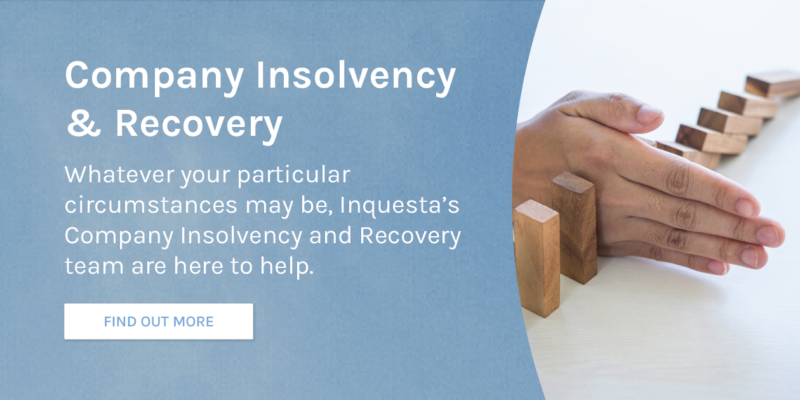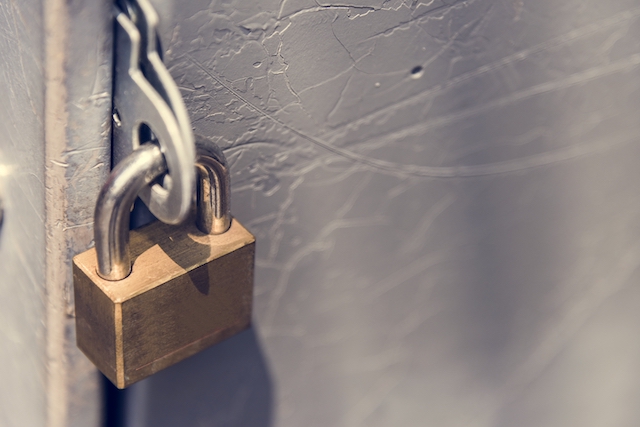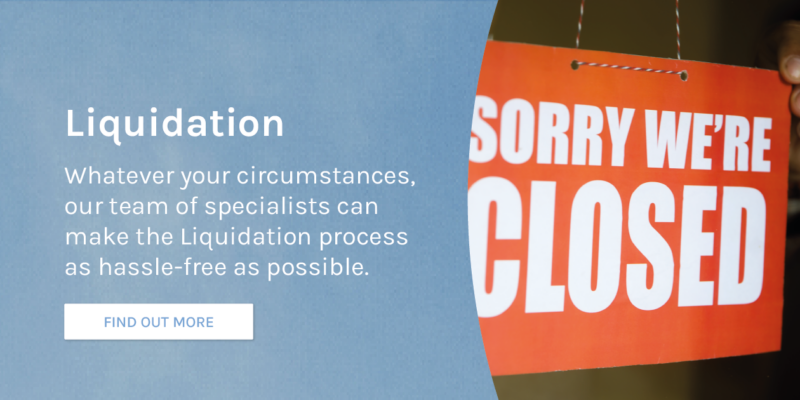Generally, the director of a limited company will be protected from the debts of their firm by limited liability. However, the existence of a personal guarantee will only muddy this. If a debt has been secured by a personal guarantee at any stage, then the director will find themselves liable should the firm be unable to pay what is owed. This failure to pay can come down to a number of factors, including:
- Poor cash flow
- Liquidity
- Revenue decrease
- Over leveraging
However, did you know that there are certain situations where a personal guarantee can be deemed as ‘unenforceable’. This could result in the director being shielded should they default.
Personal guarantees should be considered as serious commitments that in turn can hold significant consequences for both the guarantor and the guarantee. If you’re entering into a financial agreement that could require a personal guarantee, it’s vital that you understand the concept, know what an unenforceable personal guarantee is, and have knowledge of what you can do to protect yourself.
What is a Personal Guarantee?
A fairly common agreement to come across. A personal guarantee is when somebody agrees to act as guarantor should another party be unable to make a payment on time. The party owing the money is referred to as the principal and in business is more often than not the guarantor’s own business.
The presence of a personal guarantee means that if your company were to default on a loan repayment, since you have offered the assurances, you would be required by law to step up and make the payment instead. This means that the lender can pursue the personal assets, including real estate, vehicles, or other valuables, of the guarantor in order to recover any outstanding debts.
You can often find personal guarantees in financial transactions, such as:
- Loans
- Leases
- Credit Agreements
The purpose of a personal guarantee is for lenders to feel more comfortable lending to business or individuals, especially those without established credit histories. This is because it ensures that no matter what happens, they are due to receive their money back.
Giving a personal guarantee should be seen as a significant risk for the guarantor (and at times even for the lender). It’s important for anybody negotiating a personal guarantee to seek legal and financial advice before signing anything, to ensure a clear and total understanding of the exact terms offered and what the potential consequences could be.
When is a Personal Guarantee Enforceable?
A personal guarantee will become enforceable when certain conditions are met. These circumstances generally revolve around the defaulting of a debt as a result of significant financial issues on their part. However, there are some other situations which can trigger a personal guarantee being enforced. This includes a change in ownership, company liquidation, and more.
Prominent circumstances that can result in the enforcement of a personal guarantee include:
- The Defaulting of a Debt: The primary trigger. If a debtor fails to fulfil their obligations, the creditor may turn to the guarantor to fulfil the terms of the agreement.
- Grace Period Expired: Some guarantees will include a grace period that dictate how long the debtor has to rectify their default before guarantors are involved.
- Insolvency: If the involved business becomes insolvent or enters into liquidation/administration, the creditor may look to the personal guarantee to secure immediate repayment.
- Change of Ownership: If a new owner does not want to take on an existing company debt, the personal guarantee may be enforced.
- Breach of Contract: Some agreements may have specific conditions which state when a guarantee can be enforced. The most common example of this is when a payment is missed.
While a personal guarantee can become enforceable for any of the reasons outlined above, and more, the actual enforcement of an agreement will be entirely subject to the specific terms and conditions that were outlined in the actual document.
Any guarantors must make sure that they are aware of their potential liability, and what circumstances could trigger the amount being owed prior to agreeing to anything.
What Are Unenforceable Personal Guarantees?
An unenforceable personal guarantee refers to any circumstance where a personal guarantee originally intended to hold a person responsible for repaying their debts becomes, in the eyes of the law, unenforceable. This means that the creditor is not able to enforce and collect the debt.
There are a number of potential reasons an unenforceable personal guarantee could arise, including but not limited to:
- Ambiguous Terms: Disputes could be rendered, resulting in the personal guarantee becoming unenforceable, if the document’s terms are unclear or ambiguous in any way.
- Illegality: If the terms of the personal guarantee or the transaction it stems from are deemed as illegal in any way, the guarantee is void and legal proceedings will likely follow.
- Misinformation: If the creditor was able to secure the personal guarantee by any means that could be considered as misrepresentation or fraud, the guarantee could be deemed as invalid and therefore unenforceable.
- Unfair Terms: If the terms of the guarantee are deemed to be obscenely one-sided and unfair, the court may deem that the guarantee is not enforceable.
- Statute of Limitations: If the creditor were to wait too long to take action, the personal guarantee could become unenforceable. The actual amount of time for an agreement to pass its statute of limitations will vary.
- Lack of Capacity: If the person providing the personal guarantee is seen to have lacked the legal capacity to enter into the agreement at the time, then it will be no longer valid.
- Improper Execution: If the personal guarantee is not properly executed, due to missing signatures, lack of a witness, or ambiguous/unclear language, or it may be considered unenforceable.
The thing that ultimately will deem whether you have an enforceable or unenforceable personal guarantee will depend on a number of factors. If you’re questioning your agreements and wondering if you could be dealing with an unenforceable personal guarantee, you may wish to consider contacting an insolvency expert who can help you to better understand your rights and your position.
How to Protect Assets From Personal Guarantee Liability?
In order to protect assets from personal guarantee liability, there are a number of steps you can opt to undertake to minimise the risks that come with being personally liable for debt. However, while there are things you can do to minimise, you will never be able to totally eliminate the risk involved with personal guarantees. 
Measures you can take to minimise the personal risk that comes with a personal guarantee includes:
- Carefully Negotiate Terms: If you’re entering into an agreement and a personal guarantee is demanded, it’s vital that you negotiate. Make efforts to negotiate with the lender for more favourable terms.
- Structure the Agreement Favourably: It may not always be possible, but you should attempt to structure your personal guarantee to apply to specific obligations or transactions and not all debts.
- Insurance: Liability insurance does exist. It is intended to protect against the risks that can come with personal guarantees.
- Consider Your Structure: To better shield yourself from business liability, you should consider structuring your business as a corporation/Limited Liability Company (LLC).
- Renegotiate: If you have an alternative asset that could be used as collateral instead of a personal guarantee, you could attempt to renegotiate.
- Legal Advice: As highlighted above, before you sign any personal guarantees, you should seek immediate advice. An expert can review the proposed terms and help you to understand the risks and implications you could be faced with.
Guarantee You’re Looked After With Inquesta’s Personal Guarantee Support
In business, a personal guarantee is of utmost importance. As we’ve explored, the potential complexities in the agreement can have a serious knock-on effect for your financial future.
Once you consider these complications and those that can come with unenforceable personal guarantees, the need for professional assistance becomes not only wise, but vital.
Helping you through the intricate landscape of personal guarantees and unenforceable commitments will demand expertise and experience that will often go beyond the average business owner.
Inquesta’s insolvency specialists possess all the necessary knowledge and experience necessary to keep you as protected as possible. Our team has years of experience supporting directors. This means that we understand the variables that determine if your personal guarantee is enforceable or not and are perfectly placed to help.
If you’re dealing with personal guarantees, especially in the realms of unenforceability, the support of an insolvency expert can help secure your position, and safeguard not only your position, but your peace of mind.
Whether you need to negotiate with creditors, explore potential restructuring opportunities, or require support and assistance with insolvency proceedings, our team’s expertise can prove vital. Contact us today to find out more.




